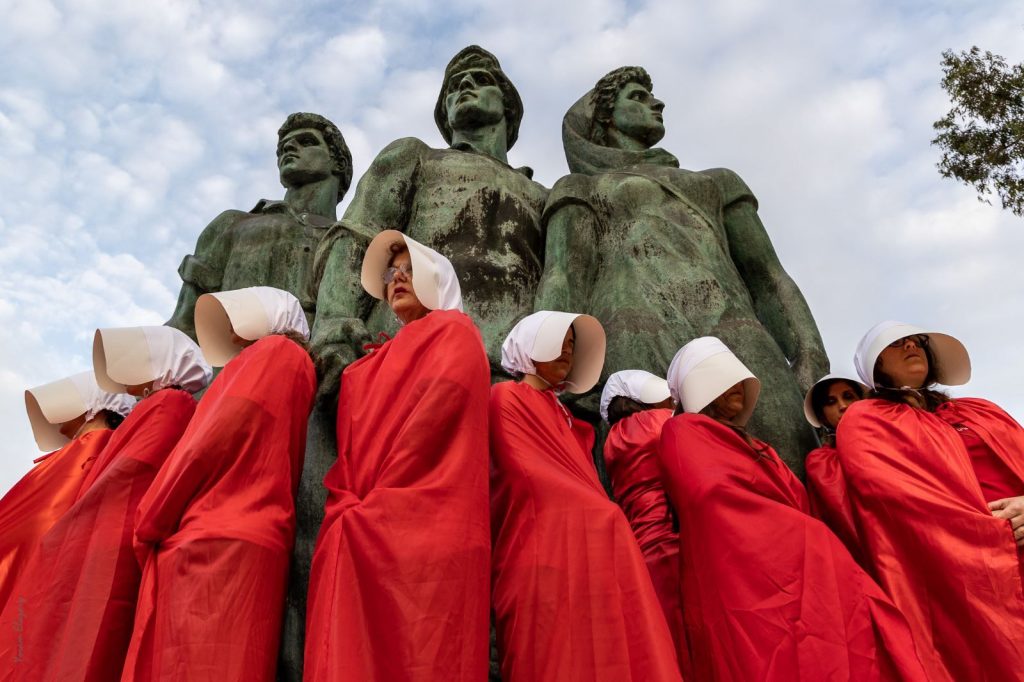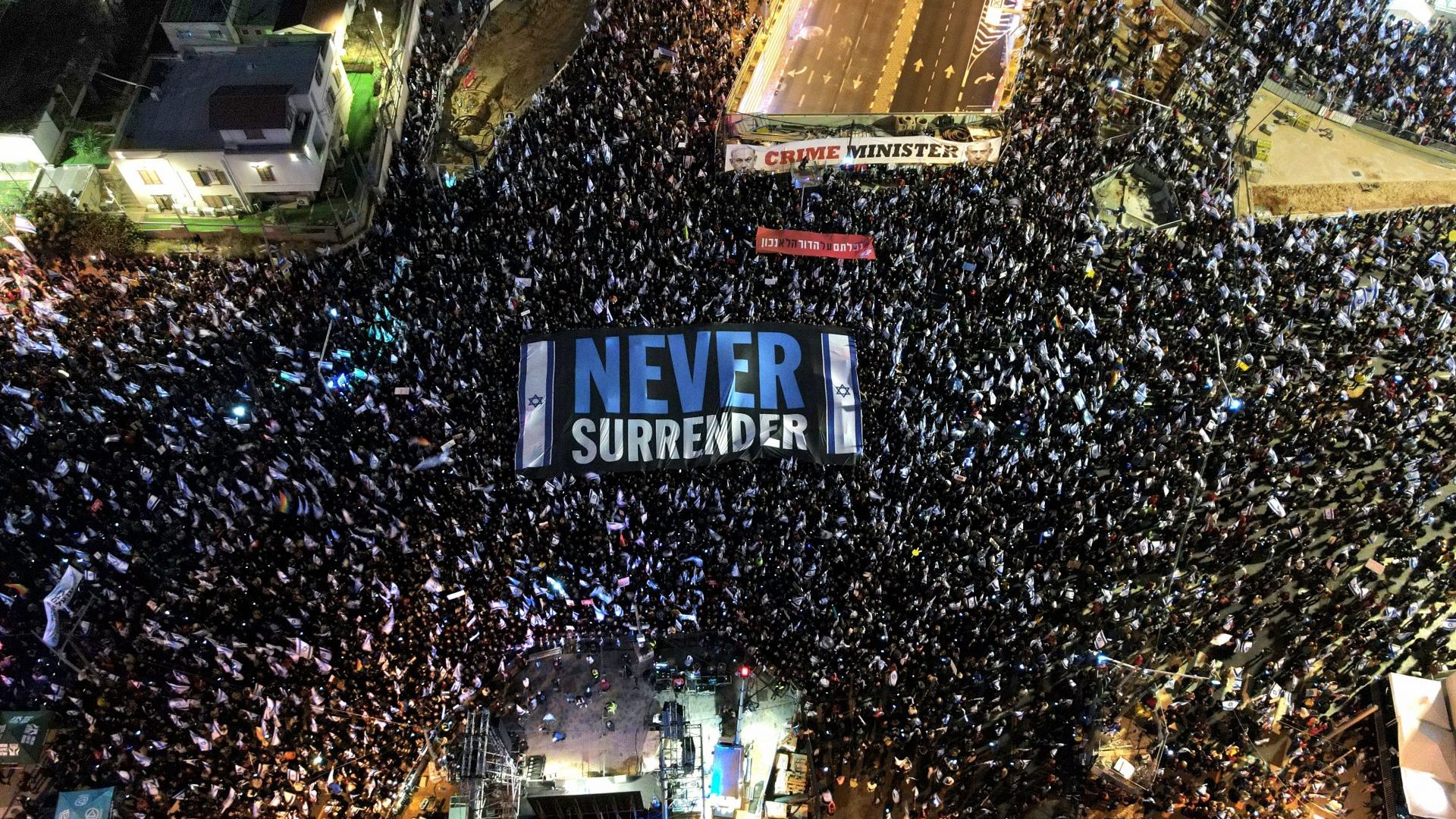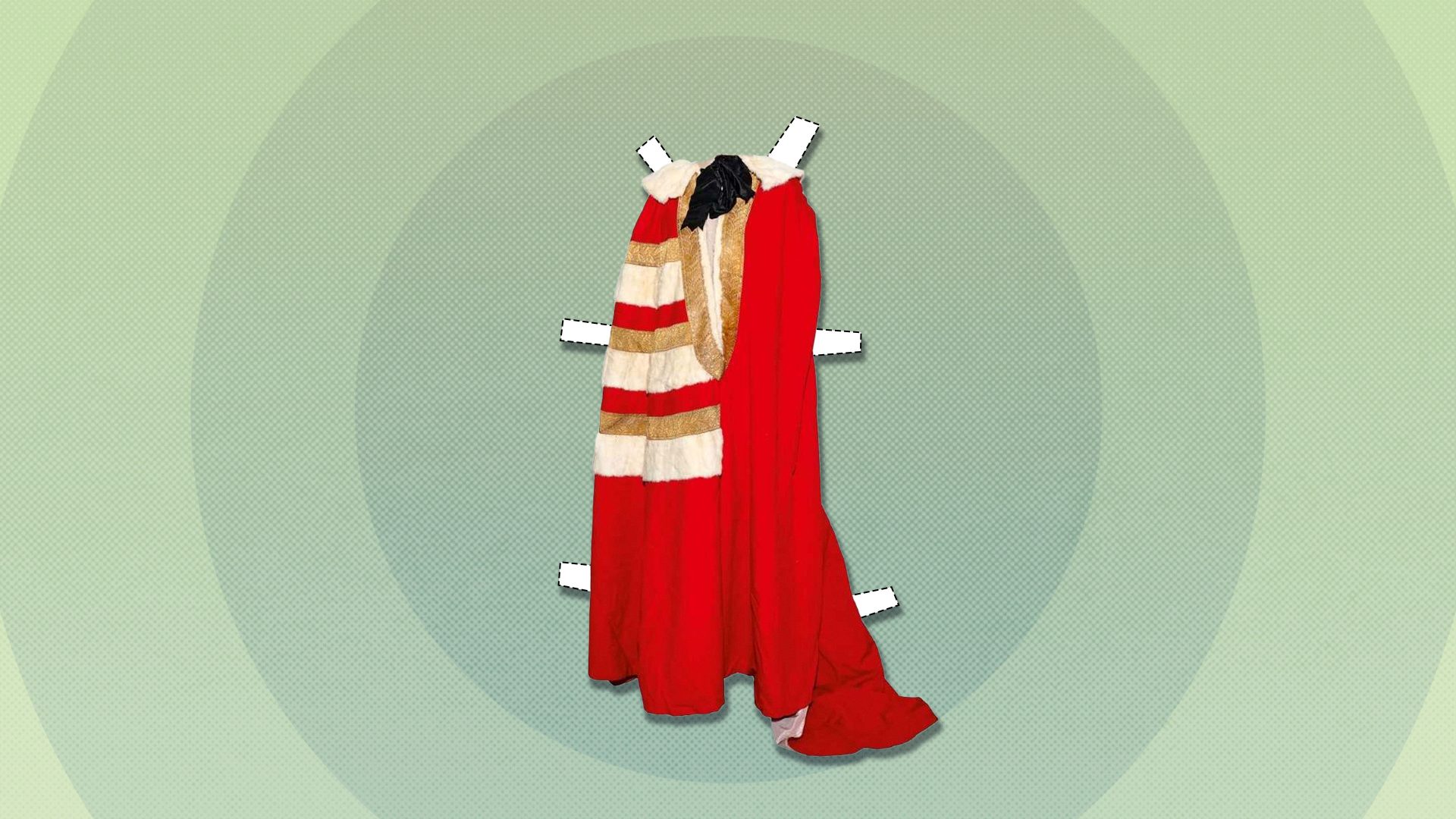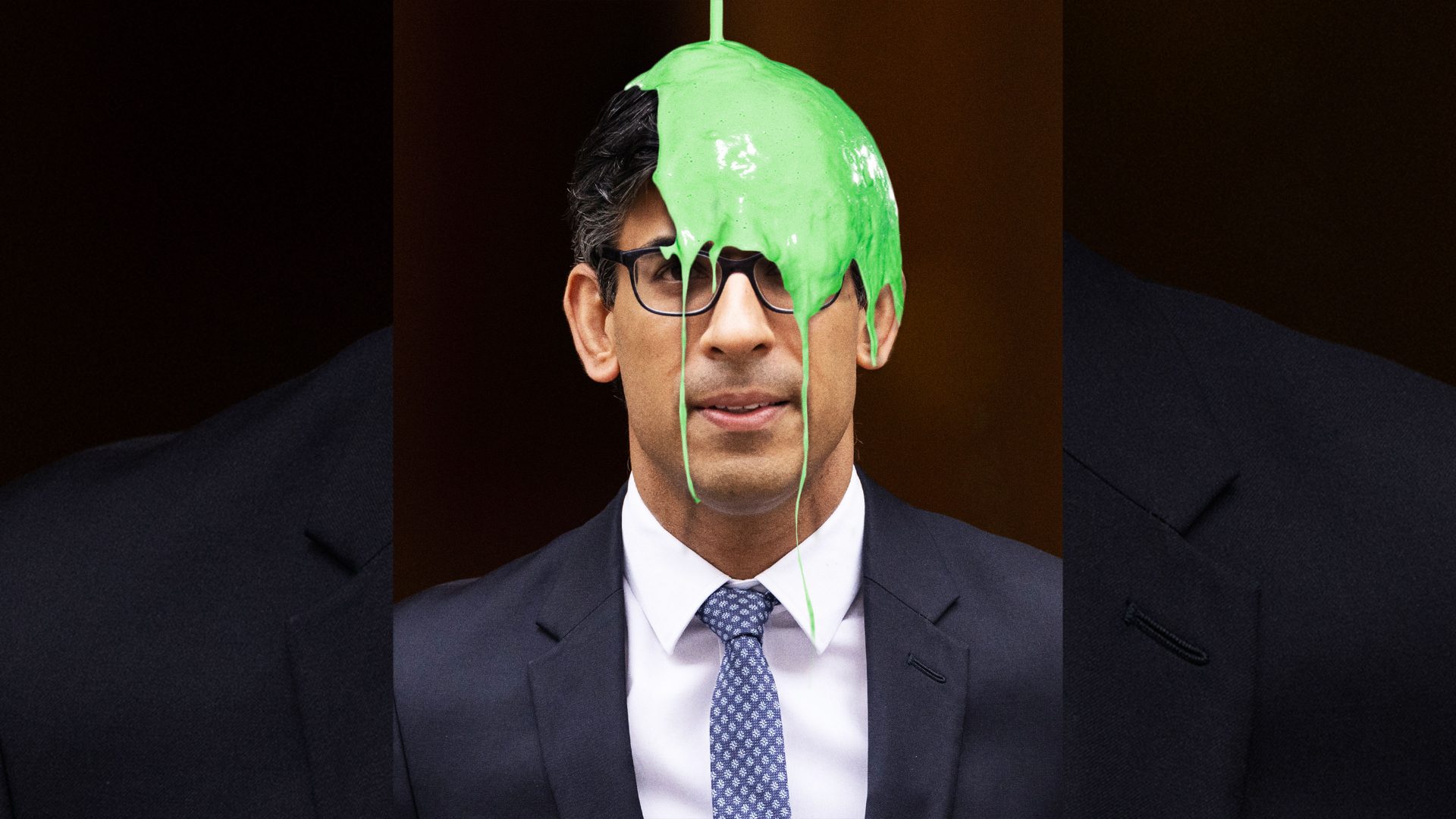The last time I went to a demonstration in Tel Aviv, the prime minister was shot dead. It was on November 4 1995 – and I recently relived the events seated in the auditorium at the Rabin Museum, surrounded by clips showing the huge banners of the Labour Party, the Meretz Party and Peace Now; balloons emblazoned with the word shalom (peace); and audio of the crowds singing.
I will never forget that evening. I had taken a bus from Jerusalem to join others from around the country who had descended on the Kings of Israel Square to show their support for the Oslo peace process. The issues seemed existential: ruling over millions of Palestinians in the West Bank and Gaza, on land seized in the 1967 Six-Day War, was morally corroding Israeli society; and the only way for Israel to remain Jewish and democratic was to let the Palestinians have their own state – or else Jews would become a minority ruling over a majority in the Land of Israel. But terrorist attacks and right-wing rhetoric had been chipping away at support for the Oslo Accords.
Echoing Israel’s first prime minister David Ben Gurion, Yitzhak Rabin – the country’s fifth leader – used to say: “We have to fight terror as if there were no peace talks, and we have to pursue peace as if there were no terror”. Rabin had apparently been reluctant to attend the demonstration that evening, worried that few people would turn out. But to his undoubted delight, over a hundred thousand people showed up. From the stage, in the square that today bears his name, he sang Shir LaShalom (the Song for Peace) with the crowd.
Lift your eyes with hope
not through the rifles’ sights
sing a song for love
and not for wars
Don’t say the day will come
bring on that day –
because it is not a dream –
and in all the city squares
cheer only for peace!
Rabin’s assassination moments later came to be viewed as the climax of the culture war in Israel between the secular left and the religious right, between those who viewed giving up the West Bank as the price for peace and those who viewed it as God-given land that no man could relinquish.
The cultural wars in Israel have reached a new stage, as I discovered on a recent visit. In the interceding years, the Israeli government forcibly removed Jewish settlers from Gaza in 2005 (an event which has become mythologised on the right as a collective trauma), but continued to support settlement in the West Bank, in effect killing off any possibility of a two-state solution. The new battleground is now over the character of the Israeli state.
I joined the demonstration in Tel Aviv on March 18 to protest against the judicial overhaul being put forward by Benjamin Netanyahu’s government. The large crowd gathered at Dizengoff Square and walked along Kaplan Street, chanting “democracy – or revolution” and “shame”. It was the 11th consecutive week that Israelis had come out across the country, waving the national flag to reclaim it from the nationalist religious right and holding signs proclaiming “it is a duty to oppose”. The protests continued, and by the end of the month, Netanyahu was under siege from all sides – including unions and members of his own coalition. A widely-expected decision to “pause” the legislation may take some heat out of the situation, but it will not settle things decisively.
Once again, there is a sense that the stakes are existential. The future of Israel as a secular liberal democratic state is in the balance. The reforms would weaken the power of the courts to act as a check on the executive and the Knesset, the Israeli parliament.
If they reforms were approved, Netanyahu would be able to nominate the judges who will decide his corruption case; illegal settlement activity in the West Bank would be made legal; and Aryeh Deri, the head of the religious Shas party who served a jail sentence for fraud and corruption, would be allowed to serve as a minister again.
At the demonstration I attended, there was a placard featuring Theodor Herzl – the founding father of modern political Zionism – with a tear coming out of his left eye. Someone dressed up as Bibi Netanyahu wearing a striped prison uniform and chains, while another held up a banner calling him the “Crime Minister”. And among it all were a few placards in English, Arabic and Hebrew stating “democracy and occupation cannot coexist”.
A group of women held up pictures of wounded doves and signs reading “women wage peace” and “the judicial overhaul buries hopes for peace.” The singer Achinoam Nini joined them to beat a drum – she had also been there the night Rabin was murdered.
The protesters are Israel’s middle class, who fear that the character of the state will be fundamentally transformed by these reforms. Former directors of Mossad, Israel’s national intelligence agency, warn that Israel is destroying itself; reservists from elite units threaten to stop reporting for duty; pilots refuse to fly Netanyahu to foreign diplomatic visits; academics warn of the impact on Israeli civil rights. Taking their cue from The Handmaid’s Tale, women put on red dresses with white hats to evoke the religious state that Israel would become without protection for women’s rights. High-tech entrepreneurs warn that foreign investors will take their money out of Israel and cause the economy to crash.

No party political banners are on display at the demonstrations, and no high-profile political leaders are directly associated with the movement. As with the Arab Spring protests, there is no apparent pathway to a political alternative. Unless a compromise is found, Israel is heading into a full-blown constitutional crisis.
Should the reforms return and pass through the Knesset, the Supreme Court would probably strike down the legislation. But it is not clear whether, in this scenario, Netanyahu would accept the Supreme Court’s verdict. And no one knows what will happen after that.
The failure of the peace process fundamentally undermined the left and, since then, politics in Israel has shifted ever more towards the right. And right wing politicians claim that, despite their success at the ballot box, the policies they want to pursue are being thwarted by an elitist, non-elected, leftist activist judiciary.
Last December, after five elections in four years, Netanyahu, whose Likud party remains the largest party in parliament, formed a government with two ultra-Orthodox parties, and three far-right national religious factions. Netanyahu is using the far right to stay in power – and avoid jail for corruption. And the far right is using him to transform the state into an illiberal one. It’s a populist, nationalist and far-right power grab against the traditionally liberal elites and the middle class.
One Israeli friend likened the situation in the country to the final year of Ceaușescu, the former Romanian dictator, saying that the Israeli PM is now increasingly out of touch with the sentiments of the population. Another compared the situation to Egypt under Mohamed Morsi, with inexperienced and extreme officials in power, trying to push through policies that will provoke a popular backlash.
But it is not just the politics in Israel that has shifted – the demographics have also changed. Ruvi Rivlin, the former president, described Israel as consisting of four “tribes”: secular, national-religious, ultra-Orthodox and Arab. At the time of Rabin’s assassination, secular Zionist Jews were in the majority. But that is no longer the case and their domination of the cultural and political landscape is being challenged. The four tribes now live segregated lives: they have their own towns, their own media and social media, and their own education systems. They develop their beliefs, cultures and identities separately from each other.
The Zionist dream of a state that is both Jewish and democratic is under threat. If the judicial reforms are pushed through, Israel will no longer be a liberal democracy but an increasingly illiberal one – like Hungary or Poland. If the government annexes the West Bank, Arabs will be the majority in the land of Israel. And if the Palestinians are fenced into their towns and villages and not given equal rights as citizens, then it will become an apartheid system.
Violence is intensifying. So far this year, 88 Palestinians and 15 Israelis have been killed. Bezalel Smotrich, the leader of the Religious Zionist Party who serves as finance minister in Netanyahu’s government, condoned a recent rampage by Israeli settlers through the Palestinian town of Hawara, in revenge for the killing of two settlers. Smotrich has publicly denied the existence of Palestinians.
The United States, a staunch defender and supporter of Israel, has failed to restrain Israel’s worst tendencies and has bolstered its illiberal tendencies through successive administrations. Private American donors have funded Jewish settlements in the West Bank as well as the Kohelet Policy Forum, a right-wing Israeli think tank that is behind the proposed judicial reforms.
Israel’s greatest threat is now not from Iranian bombs or Palestinian terrorism – but from its own domestic politics. Hundreds of thousands are taking to the streets, protesting that they no longer recognize their country. Flights from Ben Gurion airport are suspended. Universities are closed. And public sector workers are out on strike. Netanyahu has sacked his Defence Minister. On Twitter he has called on protesters “to behave responsibly and refrain from violence” – while settlers and La Familia, far-right football fans, are mobilizing in support of the legislation. He is delaying announcing a pause to the legislation until he can speak against the backdrop of protest and counter-protest pressuring him from the right.
The future of the state of Israel as a democracy requires a new social contract between its tribes – so that it can become a state of all its citizens.
Israel’s soul was mortally wounded by the assassin’s bullet in 1995 that killed Rabin. But the seeds of the nation’s democratic demise date back to the foundation of the state, when the constitution-drafting process was abandoned due to a lack of consensus on the nature of the state and the government focused instead on pressing security challenges. Today, unlike in 1948, the exodus will not be of Palestinian Arabs – but of secular Israeli Jews.
And what rough beast, its hour come round at last,
Slouches towards Bethlehem to be born?
Emma Sky is director of Yale’s International Leadership Center and author of The Unravelling: High Hopes and Missed Opportunities in Iraq and In a Time of Monsters: Travels Through a Middle East in Revolt



